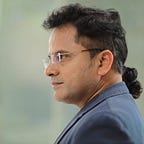A Contestable Future!
Humanity is more technologically powerful than ever before and yet we feel ourselves to be increasingly vulnerable. Why? We are at crossroads and the time is opportune to build a better tomorrow for our posterity. Our future may just depend on it!
In the evolution of mankind, as societies became more and more ‘civilised’, certain kind of social structures, social order and social hierarchies started to emerge.
The ancient Indian society had four classes (called Varnas) — Brahmin (the educated class), Kshatriya (the warrior class), Vaishya (the mercantile class) and Shudra (the serving class). The caste system evolved as one of the most symbolic manifestations of ‘appendageing’ one’s hierarchy to a name and thereby put a seal to the matter of superiority.
As per historic Indic traditions, the cause of wars — from the smallest battles to full-fledged ones — has always been attributed to one of the three factors — Zar, Zoru and Zameen. Zar referring to prestige, zoru to a man’s wife and zameen to the ownership of property.
The history of the world is replete with cases of the feudal landlord and the oppressed worker class — with property playing the monster dating ‘inequality’ to the oldest human age possible.
With industrialisation in recent centuries, however, ‘equality’ got added to the other esoteric concepts of humanism, socialism and liberalism. Industrial revolution flourished on the strength of the worker class — making the masses more important than ever before. Leadership of any kind (democracy, socialist, dictatorship, etc) invested in the well-being of masses because masses were essential for ‘industrialisation’ or for ‘militarisation’.
The issue of ‘equality’ finally saw its peak in the 20th century with colonial structures breaking and the world largely becoming free and forces of globalisation promising a bright, equitable and just future for everyone.
Globalisation’s benefits for large segments of human societies cannot be emphasised — reducing ‘inequality’ does not however seem to be one of them. Access to monopolising the fruits of globalisation with limited groups leaves the dangerous prospect of billions being left behind. If there were only 100 people in the world, one person would control half of all global wealth.
Hierarchies typically resulted in a handful of elites controlling the resources and thereby the power to rule. Importantly, to evolve the hierarchical structure, man has been limited only by his powers of the ‘physical’ and the ‘cognitive’. The stronger ruled over the weaker, the more intelligent over the less intelligent.
Flash forward to today and we have a dangerous future developing. While technology could be a powerful democratising force, modern technology is out to threaten the core principle of equality like never before.
A pet pursuit of the world’s majors — Apple, Google, Amazon, Microsoft and several others is all focused towards AI. There are several others who are throwing in the towel. With rapid strides across technological disciplines of biotechnology, bioengineering, AI and the like; we might potentially have to fear and tackle a new reality: the biological inequality.
Historically, the reasons for hierarchical superiority have not necessarily been attributable so much to genuine physical or cognitive edge as much as on the evolution of an unjust institutionalised legacy. The deterministic factors for hierarchical superiority may have a third element: ‘biological superiority’ besides physical and cognitive factors.
In future, this could change with the rich ACTUALLY being more intelligent, more creative, more talented and maybe physically more powerful.
The economically empowered have an unfair advantage to produce such brighter and smarter next generation through engineering human body and mind functions to a higher level. An ability gap of this kind may unleash a very dangerous world.
Competing at a global scale may no longer require the big ‘labour advantage’ of the third world because prosperity will require the existence of a few ‘super-humans’ and not masses of ordinary humans. In fact, the masses may be seen as a drag on the limited resources and ‘sacrificeable’ therefore for a “greater” cause. Efficiency — another valued trait in modern society — may weigh in favour of limiting the human population to a certain level and letting go of the welfare of the other 90%.
Elon Musk says humans must merge with machines! Will the 21st century be the most unequal in history? Is this fear misplaced? Where will this stop? From ordinary humans to super-humans to ‘algorithm’ finally being the superior most and the world needing a Hollywood style hero to save humanity!
The beauty of the scenario today is that humans still rule over technology. We can therefore carefully and wisely use it to create a better world.
Unlike science fiction, the future isn’t predictable, it’s ‘contestable’.
Humanity is more technologically powerful than ever before and yet we feel ourselves to be increasingly vulnerable. Why? We are at crossroads and the time is opportune to build a better tomorrow for our posterity. Our future may just depend on it!
Disclaimer: The views expressed in the article above are those of the authors’ and do not necessarily represent or reflect the views of this publishing house. Unless otherwise noted, the author is writing in his/her personal capacity. They are not intended and should not be thought to represent official ideas, attitudes, or policies of any agency or institution.
Piyush Sharma
Piyush Sharma is a modern management practitioner and ancient philosophy enthusiast
Originally published at http://www.businessworld.in on August 20, 2020.
